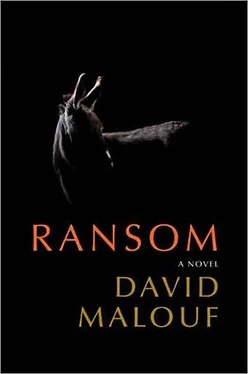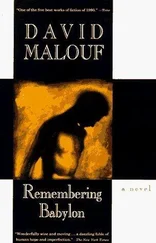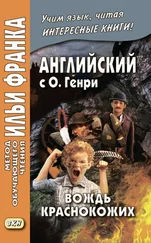When he went out on a boar hunt, for example, he was surrounded by attendants young and old, some on foot, others on horseback, each with a particular role to perform in the ceremonial play; as beaters and dog-handlers, as court officials in charge of the provisions, as tenders of the wagons that would carry them, as squires and cup-bearers who would set up the tables in the woods where at midday the whole company would eat, or as the one, specially chosen for the occasion, whose honour it would be, when the boar had been harried and brought to bay, and lowered its head and stood stamping and foaming among the leaves, to pass him the lance he was to cast — often, given the feebleness of his arm these days, in a merely formal way — before some other, younger man stepped in and made the kill.
He was symbolically at the centre, as form and his own royal dignity demanded, but could have no part in the merely physical business, all panic and sweat, of rushing through the brush to where half a ton of steaming flesh and bone waited to be hacked, and thrust at, and brought crashing to earth.
The boar was his, of course, and at the end of the day was presented to him — or rather, he was presented to it — and a little of the beast’s thick blood smeared on his brow. Men cheered, applauding his prowess. All this quite formal, and not to be taken literally. He would pour a libation, and with the gods’ assent some of the boar’s fierce energy, and hot muscle and hotter breath, would fatten his spirit. It was a mystery. Part of a world of ceremony, of high play, that was eternal and had nothing to do with the actual and immediate, with this particular occasion, or this boar, or this king. Even the landscape it took place in was freed of its particular elements — the kind and colour of the leaves, or whether the day was sunlit or mistily overcast, the earth dry or muddy underfoot. The realm of the royal was representational, ideal. Everything that was merely accidental — a broken thong, the cry of pain from a beater where the boar’s tusk found bone and real blood drenched the leaves — all this was to be ignored, left to fall away into the confused and confusing realm of the incidental and ordinary.
His whole life was like that, or had been. But out here, he discovered, everything was just itself. That was what seemed new.
In being just itself, neither more nor less, each thing appeared to him in a form he barely recognised; self-absorbed, separate, too busy with its own life of running from here to there like the water, or seeking out food like the fishlings and the noisy circle of swifts, to take much account of one old man who had wandered in among them to settle for a time and then pass on.
It was bewildering, all that, but not unpleasurable. On the whole he felt easy with himself, both in body and spirit; comfortably restored. (He waved off a cloud of midges that seemed especially attracted by his royal sweat.) But would any of it have been possible, he wondered, if he had been accompanied in the usual way by his other Idaeus? Of course, he would have been treated with the greatest consideration, but there would have been none of the surprises this new Idaeus offered.
He worked his toes in the coolness and found himself chuckling. Most surprising of all was the way the fellow let his tongue run on, with no fear at all, it seemed, of being taken for a mere rattle or chatterer.
What he had to say, if you regarded it strictly, was unnecessary. It had no point or use. The wonder, given this, was that it did so little harm — none at all in fact — to the fellow’s dignity. There was something here, Priam thought, that he needed to think about.
In his own world a man spoke only to give shape to a decision he had come to, or to lay out an argument for or against. To offer thanks to one who had done well, or a reproof, either in anger or gentle regret, to one who had not. To pay a compliment whose decorative phrases, and appeals to vanity or family pride, were fixed and of ancient and approved form. Silence, not speech, was what was expressive. Power lay in containment. In keeping hidden, and therefore mysterious, one’s true intent. A child might prattle, till it learned better. Or women in the seclusion of their own apartments.
But out here, if you stopped to listen, everything prattled. It was a prattling world. Leaves as they tumbled in the breeze. Water as it went hopping over the stones and turned back on itself and hopped again. Cicadas that created such a long racketing shrillness, then suddenly cut out, so that you found yourself aware once again of silence. Except that it wasn’t silence at all, it was a low, continuous rustling and buzzing and humming, as if each thing’s presence was as much the sound it made as its shape, or the way it had, which was all its own, of moving or being still.
This old fellow his mule-driver, for instance, his Idaeus. What he had to say, his pleasant way of filling the time, was of no importance. It was full of something else. Interest.
It was as if you had found yourself peering through the crack in a door (exciting, Priam found, this imagining himself into a situation he would never have dreamed of acting out) and saw clearly for a moment into the fellow’s life, his world — the world of the daughter-in-law too.
That matter of the little cakes, for instance. The ingredients that went into them, and the convenient device the man’s son had come up with, out of simple affection, and to make things easier for the girl who was to cook them. It had never occurred to him that the food that came to his table so promptly, and in such abundance, might have ingredients . That a griddlecake or pikelet might have some previous form as batter. That batter might consist of good buckwheat flour and buttermilk, and that what you experienced as goodness might depend on the thickness of the batter or the lightness of a wrist. Or that ingenious arrangements might need to be made before a thing as simple as a mere pikelet could make its entry into the world. Or that one of the activities a man might give his attention to, and puzzle his wits over, was the managing of these arrangements, the putting together, in an experimental way, of this or that bit of an already existing world to make something new.
All that had been none of his concern. It had had no interest for him. Now it did. And he looked at the old fellow who had revealed these things to him with growing respect.
He knew things. The life he had come from, and had to some extent brought along with him, was full of activities and facts that, for all that they were common and low, had an appeal.
The good colour of the buttermilk, for instance, as it poured out of the crock: he liked what came to his senses when he pictured it. Even more the figure of the young woman as she squatted, her robe drawn up between her knees — but gracefully, modestly — to watch her cakes; flipping them over, very deftly so as not to burn her fingers, and when she did, popping the tips of them quickly into her mouth. All that was very lively and real. He could see it, though he had never seen her . And hadn’t he tasted, in the one little cake he had popped into his own mouth, the lightness of the girl’s wrist?
It had done him good, all that, body and spirit both. He wanted more.
To know, for example, whether that girl, the daughter-in-law, was well-favoured or not, and was meagre or on the plump side. How old was she? How did she dress her hair?
And the desire to fill out the picture, to see her more clearly, led to something very unaccustomed indeed, which he did not know how to deal with. The wish to put to the man one or two questions that were in no way necessary, served no purpose at all in fact, save the scratching of an itch he had discovered to know more about these unnecessary things, and to satisfy in himself a new sort of emptiness. Curiosity.
Читать дальше












